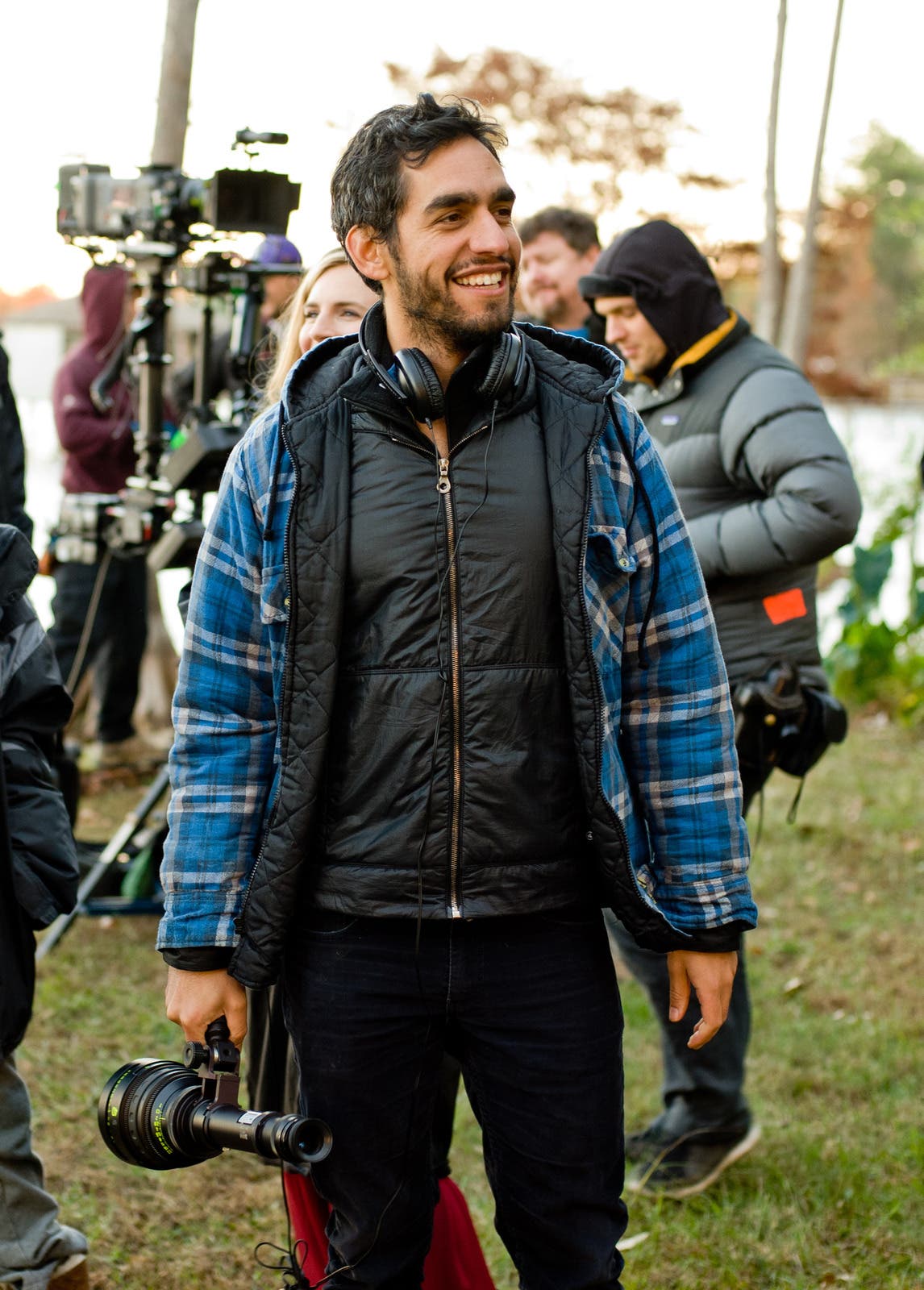The Dawning of The East: Q & A with Filmmaker Zal Batmanglij


PHOTO: The East cowriter and director Zal Batmanglij
PHOTOGRAPHY Myles Aronowitz
Serving up consciousness-raising along with suspense, the newly released film The East stars Brit Marling as Sarah Moss, a private security agent infiltrating an anarchist collective intent on avenging corporate wrongdoing. Costarring Alexander Skarsgard and Ellen Page as members of the collective, The East is the second film from the team of Marling, as cowriter and star, and Zal Batmanglij, as cowriter and director. Here, Batmanglij answers questions about the film, about eating vegan, and also about collaborating with his brother, Rostam, of the band Vampire Weekend.
You and Marling have said your going “freegan,” or living off the grid and dumpster diving for food one summer, inspired The East. How did that alchemy happen?
We went on the road for two months in 2009 to discover how other young people were living. What we found were thriving tribes, groups of young people across the country reclaiming abandoned houses, even making farms out of wrecked lots on the outskirts of once prosperous cities. We learned a lot—especially about ourselves and how much we do not need. We also made a remarkable discovery, which was that we had this free natural resource back home in Los Angeles: lots of people, just like us, who wanted to do what we wanted to do, which was to make movies. So we went home to the east side of L.A. and harnessed that resource to make our first feature film, Sound of My Voice. But we still couldn’t shake the experience of our summer travels, so we grafted some of those feelings with the anxieties of the time and used a thriller framework to grow the vine. And that vine is The East.
You’ve mentioned that the meals you ate from dumpster diving were usually vegan. Were you vegan before that? How long have you been vegan?
Veganism works especially well for dumpster diving because not only is it an ethical way to eat when you are in the “wild,” but it also eliminates rotting meats and dairy from the equation, simplifying the diving experience. And yes, I was a vegan before that summer. Since 2008 probably. But I’m also not the strictest vegan. I need to choose every day to follow the path, and if I veer off I let myself veer off, and happily enjoy it when I come back onto the road on my own accord.
On Sound of My Voice, this amazing vegan chef cooked all our meals. That was perhaps the single best decision we made on the film. Because we would show up to this no-money set, and there would be fresh fruit every morning, homemade jams, homemade muffins. It just put a smile on everyone’s face. This wonderful chef didn’t end up cooking only vegan food, but since she was a vegan chef, everything began with a vegan base, which I find excellent because it’s so easy to add some meat for people who want that, but it also makes every dish accessible for those of us who don’t eat meat or dairy.
You’ve described filmmaking as cult-like and tribal, and The East, like Sound of My Voice, involves cultish groups. Any connection?
Of course—the search for a tribe. The connection to what we do and what we write about comes from our desire to find the antidote to the alienation of modern life. And by making the groups as “other” as possible, the audience is always a little shocked to find that the people in those groups desire family so much, they’re willing to go very far out on a limb for it.
In the scene in The East with the deer—a victim of a “thrill kill,” which the collective decides to eat, rather than leaving it where they found it—Skarsgard’s character says to Marling’s as she’s removing the deer’s organs, “Feel her life.” That was so surprising, and moving. Can you talk about that scene?
Thrill kills [hunting and leaving the animal to die and rot] are emblematic of a much bigger societal problem. What else in our society is a thrill kill? The deer scene was a way to bring this viscerally home for our main character, Sarah. But she’s not convinced in that scene. We present ideas in our films, but we often present the opposite ideas as well, trusting the audience to make their own choices.
Your mother, Najimieh Batmanglij, has written several cookbooks, including Silk Road Cooking: A Vegetarian Journey. What have you learned from her?
My mother shows an array of emotions through food, much like an actor or a musician or a filmmaker. So I grew up with someone who was not only making really unbelievably tasty meals (you don’t realize it as a kid until you leave home), but I also grew up watching someone express emotions through their work, which in my mom’s case is food. The New York Times raved about her Silk Road book and included it as one of the top 10 vegetarian cookbooks, which I think basically sums it up. I keep that book handy.
Your brother, Rostam, composed a piano piece for The East. He also scored Sound of My Voice. So, is your relationship more collaborative than competitive?
Our parents emphasized collaboration in their own lives. That and being DIY. So both those things sort of seeped into us organically. We’re supercollaborative with our collaborators and also with each other. The piano piece Rostam wrote for The East played on set a lot because Toby Kebell [the actor cast as Doc, a member of the collective] was practicing it, and he’d leave the windows open, and I remember Alexander [Skarsgard] lying on the grass and just closing his eyes listening to Toby play the piece over and over again. See, that’s the trick to beating back the alienation: food, music, working together every day to make something bit by bit, step by step, bite by bite.